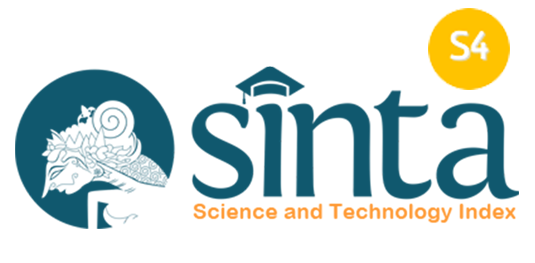Praktik Manajemen Kurikulum : Rendahnya Daya Literasi Peserta Didik pada Sekolah Dasar
DOI:
https://doi.org/10.29303/goescienceed.v6i3.1326Keywords:
curriculum, literacy, elementary schoolAbstract
This study aimed to analyze curriculum management practices related to the low literacy levels of elementary school students in terms of content, approach, and implementation. The research used a descriptive qualitative approach. Data collection techniques included: observations of teaching and learning activities to directly examine the integration of literacy into the learning process; in-depth interviews with principals and teachers to gather information on curriculum implementation and literacy activities; and documentation studies such as lesson plans (RPP), textbooks, students’ literacy assessment results, and curriculum documents. The data were analyzed through data reduction, data presentation, and conclusion drawing. Data validity was ensured through triangulation of sources and techniques by comparing the results of interviews, observations, and document analysis.
The results showed that in terms of content: curriculum changes were not accompanied by extensive teacher training, there was a lack of textbooks that promoted literacy activities, and support from the school was insufficient. In terms of approach: teachers tended to use lecture methods, and learning strategies were no longer student-centered. In terms of implementation: planning for the integration of literacy programs into the school curriculum was inadequate, teacher training on literacy-based learning strategies was rarely implemented, and evaluation and follow-up activities on students’ literacy results were minimal. These were the main factors that contributed to low literacy achievement. This study recommends strengthening the planning, implementation, and evaluation functions of a literacy-based curriculum as a strategy to improve students’ literacy skills at the elementary school level.
References
Dewi, R., & Hasanah, L. (2024). Pendekatan Literasi Tematik Integratif pada Siswa SD. Jurnal Pendidikan Literasi Sekolah Dasar, 4(2), 88-97.
Haris Abd. Kadir. (2020). Pengaruh pendidikan, keterampilan dan konsep diri terhadap kinerja guru Sekolah Dasar Negeri Kecamatan Bungku Tengah Kabupaten Morowali. Jurnal Kolaboratif Sains, 3(7). https://doi.org/10.56338/jks.v3i7.1746
Hasanah, D. F. (2024). Kesetaraan Wawasan Dunia Melalui Literasi: Evaluasi Ketercapaian Gerakan Literasi Nasional Melalui Data PISA dan Statistik Indonesia. Journal of Education for The Language and Literature of Indonesia, 2(2), 98–110
Indriawati, Buchori, I., Acip, Sirrulhaq, S., & Solihutaufa, E. (2021). Model dan Strategi Pembelajaran. Al-Hasanah : Islamic Religious Education Journal, 6(2). https://doi.org/10.51729/6246
Mulyasa, H. E. (2013). Pengembangan dan implementasi kurikulum 2013. Bandung: Remaja Rosdakarya. ISBN 978 979 692 4479
Ornstein, A. C., & Hunkins, F. P. (2017). Curriculum: Foundations, Principles, and Issues (7th ed.). Pearson Education.
Sari, W. S., & Nugroho, N. (2021). Implementasi prinsip pengembangan sumber daya manusia (SDM) dalam penerapannya di beberapa bidang berbasis ekonomi dan syariah. KarismaPro, Makassar: Universitas Fajar
Setiawan, Rosa A. D., & El Yunusi, M. Y. M. (2024). Penerapan Literasi Digital Guru Berbasis E Book dalam Meningkatkan Minat Baca Siswa di SD Kapasan III Surabaya. Jurnal Pendidikan Tambusai, 8(2), 21592–21599
Sulistyowati (2022). Kebutuhan dan persepsi siswa terhadap e‑LKPD berbasis kearifan lokal di madrasah ibtidaiyah. Jurnal Cakrawala Pendas, 8(4), 1371–1384.
Tilaar, H. A. R. (2002). Pendidikan, kebudayaan dan Masyarakat Madani Indonesia: Strategi, reformasi pendidikan nasional. Bandung: PT Remaja Rosdakarya.
Tyler, R. W. (1949). Basic Principles of Curriculum and Instruction. University of Chicago Press.
Undang-Undang No. 20 Tahun 2003 Pasal 1 Ayat (1)
Undang-Undang Republik Indonesia Nomor 20 Tahun 2003 tentang Sistem Pendidikan Nasional.
Undang-Undang Republik Indonesia Nomor 3 Tahun 2017 tentang Sistem Perbukuan
Peraturan Menteri Pendidikan dan Kebudayaan Republik Indonesia Nomor 23 Tahun 2015 tentang Penumbuhan Budi Pekerti.
Permendikbud Republik Indonesia Nomor 24 Tahun 2007 tentang Standar Sarana dan Prasarana untuk Sekolah Dasar/Madrasah Ibtidaiyah (SD/MI), Sekolah Menengah Pertama/Madrasah Tsanawiyah (SMP/MTs), dan Sekolah Menengah Atas/Madrasah Aliyah (SMA/MA).
Puspitasari, S., & Kurniawan, D. (2023). Manajemen Implementasi Program Literasi di Sekolah Dasar. Jurnal Kepemimpinan dan Manajemen Pendidikan, 6(3), 112-125.
Kemendikbudristek. (2022). Panduan Implementasi Kurikulum Merdeka. Jakarta: Pusat Kurikulum dan Perbukuan.
Widodo, S. (2023). Evaluasi Gerakan Literasi Sekolah (GLS) pada SD di Indonesia. Jurnal Evaluasi Pendidikan, 9(1), 27-39.
Yusnidar. (2023). Pengaruh Konten Kurikulum Terhadap Literasi Dasar Siswa Sekolah Dasar. Jurnal Manajemen Pendidikan Dasar, 5(1), 45-56.
Yuliana, C. P., Hasan, N. A., Maqvirah, T. A. V., & Bakkara, V. F. (2022). Analisis literasi digital pada siswa di SMA Teuku Nyak Arif Fatih Bilingual School. Jurnal Adabiya, 26(1). DOI
Downloads
Published
Issue
Section
License
Copyright (c) 2025 Jurnal Pendidikan, Sains, Geologi dan Geofisika (GeoScienceed)

This work is licensed under a Creative Commons Attribution-ShareAlike 4.0 International License.







